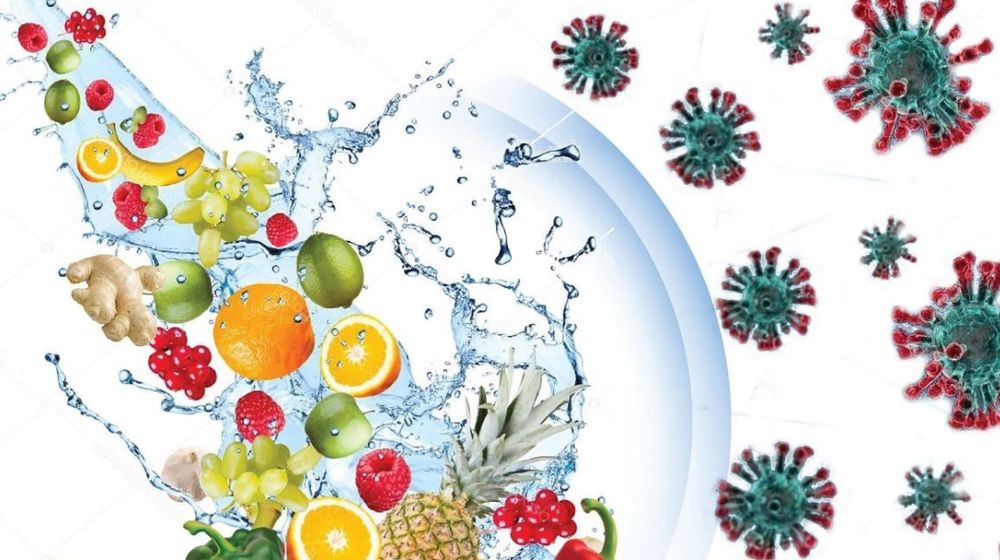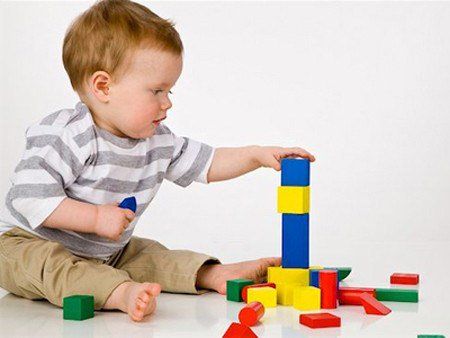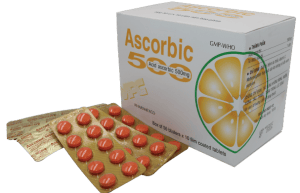This is an automatically translated article.
The article was consulted with Dr. Nguyen Thai Ngoc Chau - Neonatologist - Department of Pediatrics - Neonatology - Vinmec Phu Quoc International General Hospital.Adding foods rich in vitamin C in daily meals will help improve resistance and comprehensive development of young children, vitamin C not only plays a role in supporting the immune system but also is an invaluable antioxidant. equally necessary. Therefore, vitamin C is very important for the health of children.
1. What is Vitamin C?
Vitamin C also known as ascorbic acid, is a soluble vitamin found in many common foods such as citrus fruits, berries, apples, potatoes, and bell peppers. Some are refined. processed into functional foods. Vitamin C promotes immunity, the formation and maintenance of connective tissues as well as promotes collagen, anti-oxidant.In addition to supplementing vitamin C through foods, children can also be supplemented with vitamin C by mouth or by injection, which will help prevent and treat vitamin C deficiency, including scurvy (a typical disease caused by scurvy) severe vitamin C deficiency).
2. How important is vitamin C?

Vitamin C có thể giúp tăng cường hệ thống miễn dịch của trẻ
Vitamin C is also concentrated in immune cells, which is why it is necessary to supplement children to make their immune system as strong as possible. Besides, it also helps to keep the baby's gums healthy and strengthen the baby's blood vessels, minimizing bruising when the child falls and scratches. Many studies have shown that vitamin C can help protect children against cancer because the nature of vitamin C can fight free radicals or neutralize the action of preservatives in a food. packaged products and reduce the risk of certain cancers.
Currently there is no research to show that vitamin C can prevent colds in children, but one thing is for sure, it helps reduce the length of the illness and helps children have better resistance. So mothers can give their children orange juice or fruit with high vitamin C content to strengthen their immunity, but that does not prevent the disease completely. In addition, vitamin C also helps the body absorb iron from food sources, helping children to prevent rickets.
3. How much Vitamin C does a child need?

Trẻ từ 1 đến 3 tuổi cần 15 milligram (mg) mỗi ngày
In addition, for children who are passively exposed to secondhand smoke from the surrounding environment, such as in families with relatives using drugs, they need to be supplemented with more vitamin C than in other children. This vitamin C content, after being absorbed into the child's body, will help the body repair the cell damage caused by tobacco. Mothers also do not need to worry too much, thinking about how to give their children enough vitamin C every day because of the fact that vitamin C does not need to be supplemented every day, mothers can set goals for them. vitamin C intake for a few days or a week.
The best sources of vitamin C are in fruits, vegetables with bright colors, vitamin C in different fruits, different sizes will have different levels as follows: 1/4 cup of guava: 82 ,5 mg; 1/2 cup orange juice: 50 mg; 1/4 cup red bell pepper: 47.5 mg; 1/4 cup papaya: 47.5 mg; 1/4 cup kiwi: 41 mg; 1/2 medium orange: 30 mg; 1/4 cup broccoli: 30mg; three medium strawberries: 21mg; 1/4 cup pink grapefruit: 23 mg; 1/4 cup cantaloupe: 17 mg; 1/4 cup mango: 11mg; 1/4 cup raw tomatoes: 5 mg; 1/4 cup spinach: 4.5 mg; 1/4 cup potatoes, cooked without skin: 3mg; 1/4 cup banana: 2mg,...
Children can eat more or less than the amount of Vitamin C in each food, depending on the child's age and preferences and appetite. If mothers find that their children have a preference for any type of food, they can also pay attention and increase that food in their children's diets to be able to meet the necessary vitamin C content for the child.
4. How to know if a child is deficient in Vitamin C?

Trẻ hay bị viêm lợi có thể do thiếu vitamin C
In addition, there are external manifestations of children showing vitamin C deficiency such as children with gingivitis, children with delayed teething, or bleeding gums. Children often appear bruises on the skin, children are often sick, especially respiratory diseases and skin diseases such as acne, itching, ...
5. How does a child get too much Vitamin C?

Khi trẻ nhận được quá nhiều Vitamin C có thể bị tiêu chảy
However, megadoses can still cause nausea, diarrhea, kidney stones, and gastritis (inflammation of the stomach lining). When children 1 to 3 years old do not receive 400mg of Vitamin C per day, children 4 to 8 years old should not take more than 650mg per day. That's the maximum amount considered safe by the Food and Nutrition Board of the Institute of Medicine, so moms should be careful when giving their children adult chewable supplements, because Each tablet can contain up to 500mg, which is too much for children
Vitamin C is an essential nutrient for children in particular and for everyone in general. For children, vitamin C helps their bodies form blood vessels, collagen, cartilage and muscles. Maintain the existence of tissues in the child's body. Besides that, Vitamin C also aids in the repair of connective tissue, red blood cells, cartilage, muscles and helps cuts and wounds heal, boosts the immune system and prevents infections. Therefore, in addition to providing necessary nutrients for children, parents also need to pay special attention to increasing their children's intake of foods rich in vitamin C.
Children in the period from 6 months to 3 years old are very prone to respiratory problems, respiratory infections, skin diseases and gastrointestinal infections... Therefore, in addition to the diet, children need to be supplemented with: lysine, micro-organisms Essential minerals and vitamins such as zinc, chromium, selenium, and B vitamins help to fully meet nutrient needs, support digestion, enhance nutrient absorption, help improve anorexia, and help improve appetite. children eat well.
Pediatrics department at Vinmec International General Hospital is the address for receiving and examining diseases that infants and young children are susceptible to: viral fever, bacterial fever, otitis media, pneumonia in With a system of facilities, modern medical equipment, sterile space, minimizing the impact as well as the risk of disease spread, Vinmec will bring satisfaction to customers. Products and is highly appreciated by experts in the industry with:
Gathering a team of leading doctors and nurses in Pediatrics: Including leading experts with high professional qualifications (professors, associate professors, doctors). , masters), rich experience, worked in big hospitals such as Bach Mai, 108.. The doctors are well-trained, professional, have a heart - reach, understand young psychology. In addition to domestic pediatric specialists, the Department of Pediatrics also has the participation of foreign experts (Japan, Singapore, Australia, USA) who are always pioneers in applying the latest and most effective treatment regimens. . Comprehensive services: In the field of Pediatrics, Vinmec provides a series of continuous medical examination and treatment services from Newborn to Pediatric and Vaccine,... according to international standards to help parents take care of their baby's health from birth to childhood. Advanced techniques: Vinmec has successfully deployed many specialized techniques to make the treatment of difficult diseases in pediatrics more effective: neurosurgery - skull, stem cell transplant blood in cancer treatment. Professional care: In addition to understanding children's psychology, Vinmec also pays special attention to the children's play space, helping them to play comfortably and get used to the hospital's environment, cooperate in treatment, improve the efficiency of medical treatment.
References: babycenter.com, health.clevelandclinic.org, parenting.firstcry.com














